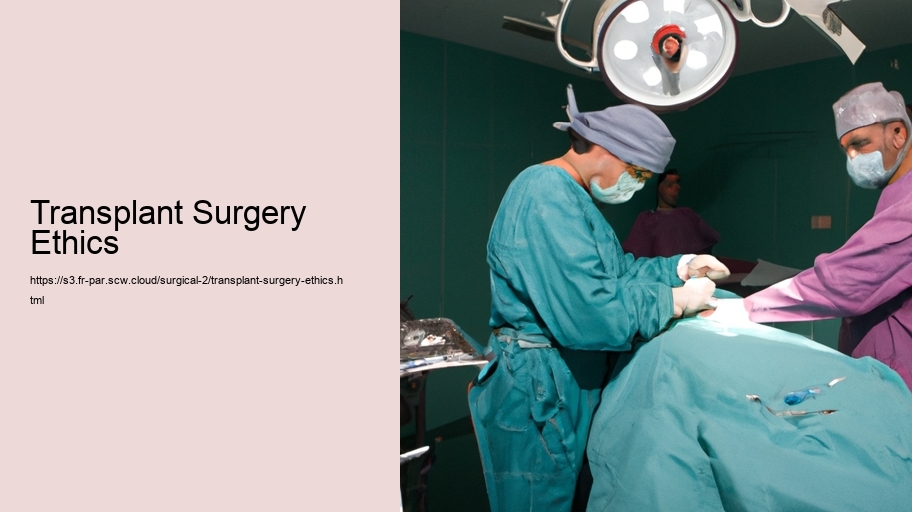Transplant surgery ethics encompasses a complex web of moral principles and considerations that guide the practice of transferring organs or tissue from one body to another. This field of ethics is critical because transplant surgery holds the power to save lives and improve the quality of life for recipients, yet it also raises profound ethical questions about the distribution of scarce resources, the respect for donor autonomy, and the potential for exploitation.
One of the primary ethical concerns in transplant surgery is the allocation of organs. With a chronic shortage of available organs and a growing list of patients on transplant waiting lists, questions of priority become paramount. How do we decide who receives an organ transplant first? Various criteria are considered, including medical urgency, the likelihood of success, the patient's age, and time spent waiting. The principle of justice demands a fair and equitable system that does not discriminate on the basis of race, gender, wealth, or social status. However, this is easier said than done, and ethical frameworks such as utilitarianism, which seeks the greatest good for the greatest number, and egalitarian approaches, which emphasize equality of access, can sometimes be in conflict.
Another ethical dilemma arises from the procurement of organs. The principle of respect for autonomy requires that donors (or their families, in the case of deceased donors) provide informed consent. This means they must be fully aware of the risks and implications of donation and must not be coerced or unduly influenced. Living donors, in particular, must be protected from exploitation, especially in situations where there might be pressure to donate, such as within families or between employer and employee. The specter of organ trafficking and the sale of organs on the black market further complicates the ethical landscape, raising serious concerns about the commodification of human body parts and the potential for harm to vulnerable populations.
The concept of "brain death" as a criterion for deceased donation also presents ethical challenges. Determining the point at which a person is no longer alive is fraught with philosophical, medical, and legal implications. While brain death is widely accepted as a definition of death in many jurisdictions, there are ongoing debates about its sufficiency and the respect for cultural and personal beliefs that may not align with this definition.
Transplant surgery ethics also intersects with the principle of non-maleficence, or "do no harm." Surgeons and medical teams must carefully consider the risks to both donors and recipients. For living donors, the surgery poses a risk to an otherwise healthy individual for the benefit of another. This risk must be minimized and justified by the potential benefits to the recipient. For recipients, the possibility of organ rejection and the lifelong commitment to immunosuppressant medications, with their side effects, must be weighed against the potential improvement in health and longevity.
Transparency and public trust are crucial in the realm of transplant surgery. The system must not only be ethical but must also be perceived as ethical by the public to maintain confidence and encourage organ donation. This necessitates clear policies, consistent application of guidelines, and open communication about the processes and decisions made by transplant teams and allocation bodies.
In conclusion, transplant surgery ethics requires a delicate balance between competing principles and interests. It demands careful consideration of justice, respect for autonomy, non-maleficence, and transparency. As medical technologies advance and the demand for organs continues to exceed supply, the ethical challenges in this field will undoubtedly evolve, requiring ongoing reflection, dialogue, and adaptation of ethical frameworks to guide this life-saving aspect of modern medicine.
